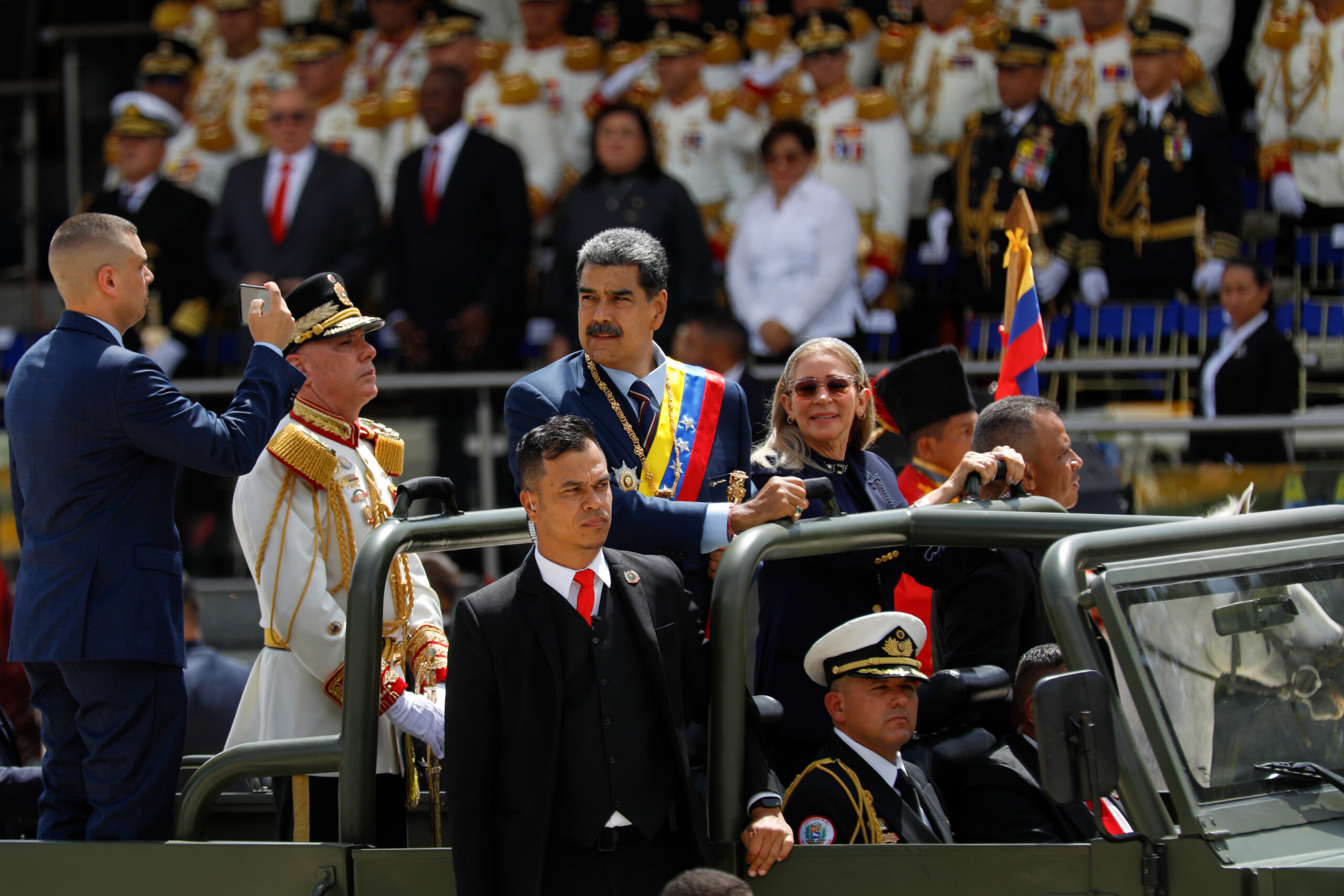- July 16, 2024
Regional leaders must act fast to prevent fraud, violence in Venezuela’s elections

Andres Oppenheimer
There are growing fears that Venezuelan dictator Nicolas Maduro will suspend the July 28 elections or announce a ban on opposition candidate Edmundo Gonzalez Urrutia, who is leading by a wide margin in the polls.
Washington and Latin American democracies should do something — and fast — to prevent these or other last-minute Maduro ploys.
One idea that is circulating in diplomatic circles is sending a mission of Latin American foreign ministers to Venezuela to observe the elections, perhaps accompanied by a bipartisan delegation of U.S. legislators.
The mission would be made up of both friends and critics of the Venezuelan regime. It could include Brazil, Colombia, Chile, Argentina and Guatemala, and could offer itself as a mediator between the government and the opposition in case of a disputed election result, supporters of the idea say. But so far, no country has publicly endorsed this proposal.
Fears that Maduro will seek an excuse to suspend the elections or ban the leading opposition candidate have risen in recent days. In addition to the polls showing an opposition advantage, it has become clear that opposition rallies are drawing much bigger crowds than Maduro’s, despite the regime’s massive use of state resources to drag people to his campaign rallies.
Maduro suffered a propaganda blow during a recent campaign rally in the city of San Cristobal, in the western state of Táchira, when an open mike caught him complaining to the local governor about the size of the crowd. “This doesn’t look good… few people,” Maduro said, according to press reports.
A new poll released by Hercon Consultores shows Gonzalez Urrutia leading with 68.4% of the vote, compared to Maduro’s 27.3%. Another poll by Datanalisis, looking at various scenarios, has Gonzalez Urrutia leading by a margin of between 18% and 25% of the vote.
When I asked opposition candidate Gonzalez Urrutia in a July 5 interview whether he fears that Maduro will suspend the election or ban him from running rather than risk a defeat, he responded that it may be too late for the regime to do such things this close to election day.
“Of course they can do it, because this is a government that doesn’t have any limits to resort to tricks like that,” Gonzalez Urrutia told me. “But it would be a public admission that they’re lost. I don’t think they’ll risk taking that decision.”
But privately, many opposition leaders tell me that in the face of the latest polls, Maduro may indeed use any pretext to suspend the election, or ban Gonzalez Urrutia, as he has previously done with opposition leader Maria Corina Machado.
Despite the regime’s measures to curtail opposition votes, such as prohibiting more than 4.5 million Venezuelans abroad from registering, Maduro may conclude that he won’t be able to rig the vote count on election night if the opposition turns out massively, opposition sources tell me.
Carlos Vecchio, former interim President Juan Guaidó’s ambassador to Washington, is among those who support the idea of a regional foreign ministers’ mediation mission to Venezuela.
“We may see moments of high political conflict that day,” Vecchio told me. “An on-site mission of Latin American foreign ministers could have access to both sides, and help keep Maduro from doing something crazy.”
While not specifically mentioning a foreign ministers’ mission, Gonzalez Urrutia told me that he has talked with several Latin American presidents in recent days and urged them to get involved in the Venezuelan elections.
“I’m calling on all members of the international community to follow Venezuela’s electoral process closely, to pay attention to what will happen on election day,” Gonzalez Urrutia said. He added that it’s in Latin American countries’ own interest to be “guarantors” of a peaceful transition in Venezuela.
Indeed, an estimated 8 million Venezuelans have already fled their country in recent years, straining the resources of many Latin American countries and triggering a migration crisis in the United States. Millions more may flee Venezuela to countries in the region if Maduro steals the elections, and there is a new cycle of political violence, on top of the country’s lingering economic crisis.
History could repeat itself. When Maduro fraudulently reelected himself in 2018, there were widespread protests, and government death squads were responsible for more than 7,000 extrajudicial deaths, according to the U.N. High Commissioner for Human Rights office.
Unless Washington and Latin American democracies act quickly and send a regional mission to Venezuela, Maduro will probably rig the vote on election day and convene the Community of Latin American and Caribbean States (CELAC), a regional group run by leftist countries, to bless his fraudulent reelection.
That’s why the region’s democracies must act now, before it’s too late, and send their top diplomats to Caracas. It’s in the region’s best interest to prevent a bloodbath and a new wave of mass migration from Venezuela.

